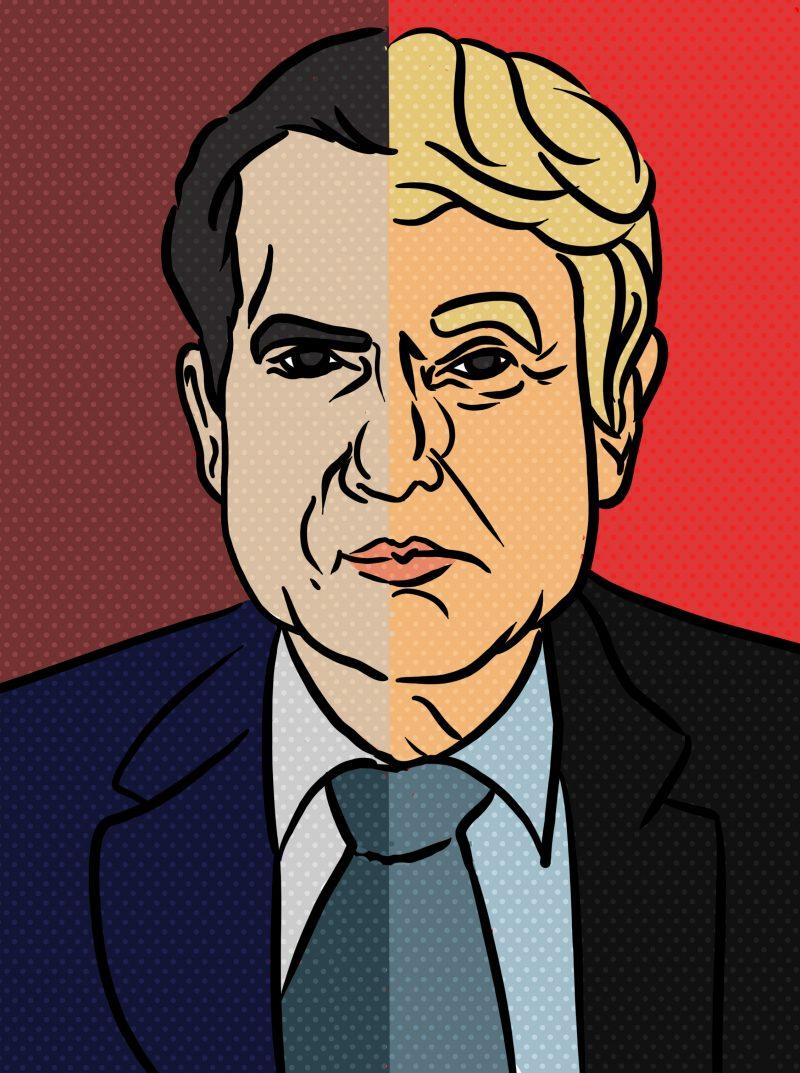Shocking revelations and event after event revealing duplicities from the White House that leave the nation glued to their screens watching investigations unfold — though these details correspond with the present Trump drama, this account is about Richard Nixon.
Reading Stanley L. Kutler’s “The Wars of Watergate: The Last Crisis of Richard Nixon,” one is struck by the sheer length of the investigation and the sheer effort put forth by the Nixon administration to cover up the burglary. Early on, the idea that Nixon was an accomplice or even knew of the details of the burglary seemed inconceivable to many Republicans and Democrats in both the House and the Senate.
Only through FBI investigations and congressional investigations did the pressure grow sufficient enough to demand the appointment of a special prosecutor, Archibald Cox. Cox’s appointment reflected a breakthrough in the investigation and the realization that — despite the work of the Department of Justice in investigating Watergate — it was necessary for the investigation to be less connected to the president.
Congressional Republican leaders only fully began distancing themselves from Nixon after Alex Butterfield, an aide to Harry “Bob” Halderman, revealed on July 13, 1973, that Richard Nixon had maintained a taping system in the White House and had recorded most of his conversations. This revelation forced Republican leaders — such as Senator Howard Baker (R-TN) — to demand release of the tapes following Baker’s previously stated mantra that the goal of the hearings was to reveal “what the president [knew], and when he [knew] it.”
The tapes possessed the ability to either condemn or exonerate Nixon. Due to this, Nixon fought against the release of the tapes. When Cox requested the tapes, Nixon sacked the attorney general and the assistant attorney general when they would not fire the special prosecutor. Finally Robert Bork, then the Solicitor General, fired Cox. This became known as the Saturday Night Massacre.
Eventually Nixon’s duplicity, his tumbling approval ratings and his contempt of congress caught up with him. When a tape revealed that Nixon knew of the cover-up from the beginning, his position became untenable, and he lost support in Congress that would have prevented impeachment. Thus, Nixon eventually resigned.
Throughout all of this, Nixon and his affiliates called the press their enemy. Moreover, during the Watergate controversy — according to “Messengers of the Right: Conservative Media and the Transformation of American Politics” by Nicole Hemmer, assistant professor of presidential studies at the University of Virginia’s Miller Center — right-wing media concluded that the issue was not Nixon’s too-powerful presidency, but an all-powerful press that could topple a presidency for what right-wing media considered to be a liberal conspiracy. While the conservative press attacked Nixon following his resignation, they — like the Nixon administration — blamed Watergate on liberal institutions, though the conservative press included Nixon’s administration in the liberal mix.
Conservative media in the 70’s was not as influential it is now, and their defenses of Nixon did not work. Nowadays, we have Fox News, the Weekly Standard, Breitbart, One America News Network and a plethora of other conservative reactionary media sites that both protect Trump and spread conspiracies about Democrats and liberal causes. Alex Jones, host of the far-right podcast “InfoWars,” promoted “Pizzagate” and the idea that Sandy Hook was fake — an idea that has prevented parents from visiting their children’s graves.
With the release of these conspiracies into the wider media environment, one wonders whether Nixon might have survived in today’s media landscape and whether Donald Trump — the current president of the United States — would still be president in the 1970’s media landscape. Perhaps the recent plea by Michael Cohen will, with the help of Fox News and our modern media environment, be reduced to a liberal conspiracy. Perhaps instead the plea will be a pivotal point in the investigation of criminality during the 2016 presidential campaign. But with an administration engulfed by scandals and multiple aides pleading guilt — such as Michael Flynn, Michael Cohen and Paul Manafort — parallels with the Nixon presidency and its scandals certainly exist. One must hope that, like in Watergate, the truth will come out.






